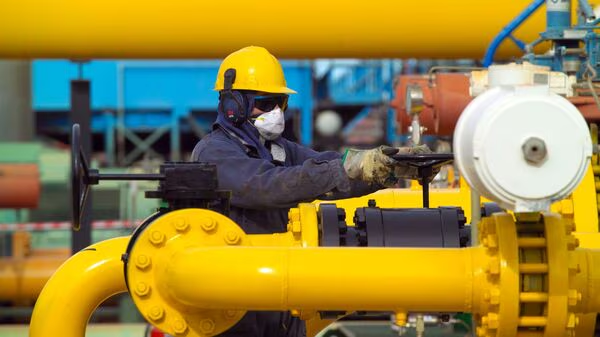India’s Strategic Decision to Buy Russian Oil: Preventing a Global Oil Price Surge
In a recent interview with CNN’s Becky Anderson at the ADIPEC energy conference in Abu Dhabi, India’s Union Minister of Petroleum and Natural Gas, Hardeep Singh Puri, highlighted the critical role India played in stabilizing global oil prices.
Minister Puri explained that India’s choice to buy oil from Russia amid the ongoing global energy crisis helped to prevent oil prices from spiraling out of control. Without this move, global oil prices could have soared to $200 per barrel, he said, affecting countries worldwide.
Minister Puri noted that Russia’s oil supply became an essential factor for India, especially after February 2022. At the time, global markets were facing unprecedented challenges, with 13 million barrels of Russian oil suddenly flooding the market.
This oversupply could have caused severe price volatility. He explained, “If that oil had gone off the market, and India had shifted its demand of 5 million barrels to Gulf suppliers instead, the price of oil would have surged to $200 a barrel.”
This decision, he argued, wasn’t just beneficial for India but helped mitigate a potential crisis that would have affected oil prices globally. “We did everybody a favour,” he emphasized, indicating India’s actions were a calculated measure to ensure stability in the global oil market.

In October, India reduced its Russian oil imports by about 10%, and Minister Puri clarified that this decision was due to competitive pricing in the oil market. “There are other suppliers willing to match competitive rates. There’s healthy competition going on,” he said.
This market-driven approach means that India can explore alternative suppliers if they offer comparable prices, underscoring India’s commitment to maintaining economic pragmatism in energy sourcing, NDTV.
Puri also clarified that these reductions are purely economic choices, not strategic shifts. “These are decisions taken in the marketplace,” he noted, reiterating that India’s priority is to find the best sources to meet its massive domestic demand.
READ ALSO: Frequent Grid Collapses: FG Mandates Overhaul Amid TCN Warnings of Further Breakdowns
Despite India’s strategic oil decisions, Minister Puri affirmed that oil would remain a cornerstone of the world’s energy mix in the near term. However, he was optimistic about the gradual shift to cleaner energy, with India actively exploring technological advancements in green hydrogen and renewable energy.
By 2026, as cleaner energy alternatives gain prominence, Puri foresees a potential decline in global oil prices. “As a student of the situation, I think that the likelihood of prices remaining stable and coming down is higher,” he remarked, expressing confidence that these innovations would reshape global energy demand and supply in the coming years.
Minister Puri addressed criticisms from some commentators who suggested restricting India’s energy purchases from Russia, pointing out that several European and Asian countries also continued to buy significant quantities of energy from Russia. He stated that these commentators were “ill-informed” and that India’s decisions prioritize the well-being of its citizens.
India is currently the third-largest oil consumer in the world, as per the International Energy Agency, with an immense daily demand at its petrol pumps. Minister Puri emphasized that maintaining a steady supply of affordable and sustainable energy is the Indian government’s top priority.
“We need to ensure steady availability, affordability, and sustainability of energy for our 7 crore citizens who visit a petrol pump every day,” he said.

India’s stance is clear: it will continue to purchase energy from suppliers who offer the best rates. Minister Puri highlighted that India’s policy has helped the nation reduce fuel prices for its citizens, even amid global price hikes. This reflects India’s ongoing efforts to protect its economy and ensure energy security for its population.
Through strategic market decisions, India has managed not only to secure its own energy requirements but also to play a stabilizing role in the global oil market. Minister Puri’s statements illustrate India’s approach: one that is adaptive, market-driven, and focused on benefiting both its citizens and the broader global economy.
In the complex and often volatile global energy market, India’s pragmatic oil decisions serve as a reminder of how balancing national interest with global impact can prevent crises and foster stability in a rapidly changing world.
Discover more from Cine critique
Subscribe to get the latest posts sent to your email.

